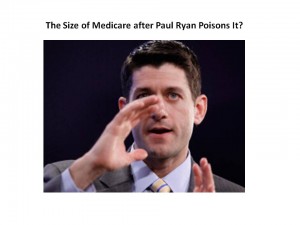By Jim Hoover
In the last ranking in 2000, The World Health Organization (WHO) has named the French health care system the best in the world. Who ranked the U.S. 37th, close behind Costa Rica, Dominica, and Chile. Statistics supporting this ranking seem to persist today.
If you remove the private middle-man with the bureaucratic system of controls and restrictive coverage which make private health care companies and their CEOs obscenely rich, the US health care system would compare favorably with health care systems for any advanced country.
The cost and control byproducts of our for-profit system, compared to the French system, are mostly bad. The American system has a paucity of doctors. The French have 1 for every 430 people; we have 1 for every 1,230 people. American doctors are kept out or driven out by the forces of money, including institutions like the AMA, which restricts numbers, and health-provider bureaucratic controls which drive doctors out of practice with their controls intended to maximize profits, not provide better care.
The average life expectancy in France is three years longer than the US – France is 19th in life expectancy; we are 34th. The cost of the French system is approximately $3,600 per person, compared to $7,100 spent per capita in the U.S, a number principally explained by private administration costs carving out more than 30%, much for profits. The American system is now over 17% of Gross Domestic Product (GDP), the highest of advanced countries of the world.
WHO is a UN organization which might not have much credence for the average American, who doesn’t have any experience with health care in other countries. We get most of our information from the American media which has incestuous connections with our most influential health care elements, including hospitals, pharmaceutical companies, and health care providers like United Health Care, Kaiser, and Blue Cross-Blue Shield. In a nutshell, we all drink from a poisoned media well, influenced by the filthy-rich health care industry.
Perhaps experiences by Americans who have sampled from both health systems can illustrate the differences. First, let’s look at an American entrepreneur.
Martin Varsavsky lived in the States for 18 years and now lives in Madrid, but is sharing his experience posted on March 24, 2007 while he visited Paris:
I had a 3 cm cut on my chest that urgently required stitches. I was rushed to Hopital St Antoine, which is not far from Place des Vosges where we have an apartment (my wife is French and we come frequently to Paris). I was successfully treated and sent home in less than 90 minutes.
The following compares his experience with several hospital visits in the US: When you enter a hospital in America, you are greeted by a mountain of paperwork; in France there was no paper needed anywhere, no forms, no signatures. Admission took 45 seconds. Martin didn’t even have documentation on him in the Paris hospital, and he left after treatment without a release form and without a bill.
His conclusion is that America probably has the best doctors in the world, the best medical research and the best hospitals. Once an American medical professional gets to treat you the medical care is great. But attitude of the French medical personnel is better. The French see free medicine for all as a right. Our system does not.
Mary Cline is an American who lived in several US cities. She is a freelance writer and editor who now lives in Paris. She wrote about differences in the two health care systems in 2008:
Shortly after we moved to Paris, my son, Luke, cut his lip in a fall at school. I rushed him to the emergency room of a suburban Paris hospital, where a nurse asked my name and address and a doctor quickly stitched up his cut. When I tried to pay, the cashier asked me to call the following week because the “computer is slow.” A bill eventually arrived in the mail for the equivalent of $60.
Mary has had cancer care both in California and in Paris. The difference has been the cost, the paperwork and health care providers dictating terms for patients in the American system. Otherwise the care was excellent in both systems.
Americans do not have a good health care system because private companies do not want to give up the enormous profits they are assured. Their ideal is caring for younger Americans who do not need their services much and pushing the burden for older Americans on the government.
The health care industry’s intensive campaign against Obama’s health care reforms intimidated him and the Democrats into supporting a plan that continued all of the flaws that make the French system much better than our own in terms of cost, efficiency and concern for the patient.
With the power of the mega-corporations that control our health care system, not much will change without the education of the public and an intense fight against the health care moguls.





